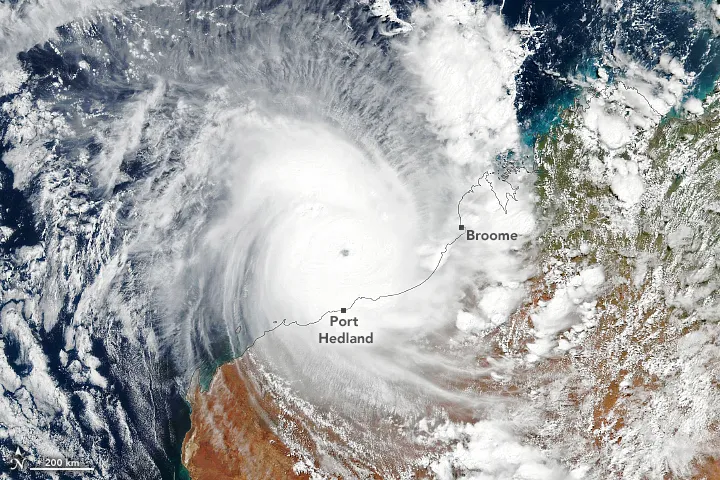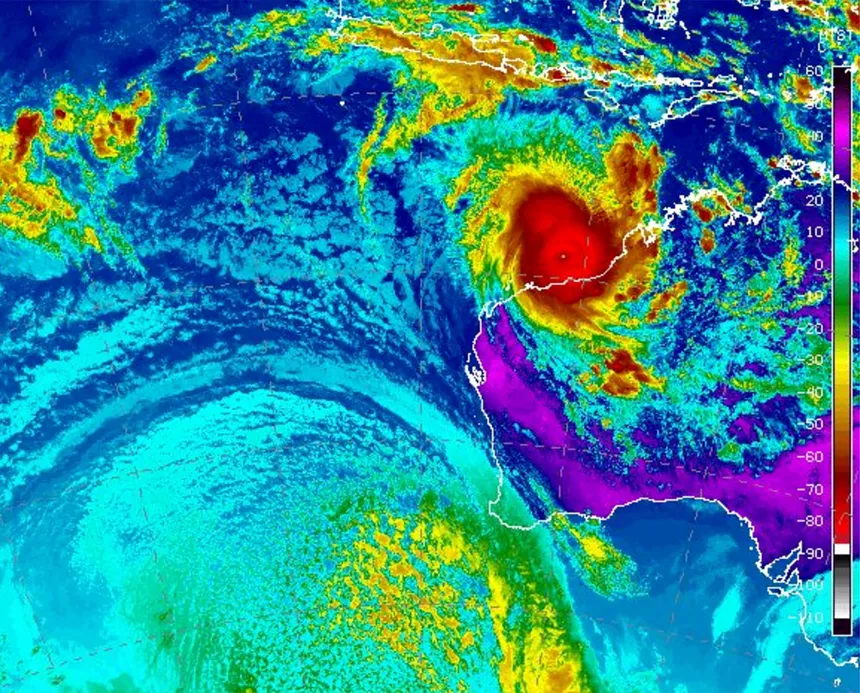Tropical cyclones, fueled by rising global temperatures, are increasingly wreaking havoc on seabird populations, according to a recent study. The research, published in the journal Communications Earth & Environment, reveals that a single category-5 cyclone, Cyclone Ilsa, decimated seabird populations on Bedout Island in Western Australia, leading to a collapse of 80-90% in just a few weeks.
The study’s findings are a stark reminder of the devastating impacts of climate-induced storms on wildlife. Bedout Island, a mere 17-hectares in size, was home to over 20,000 seabirds before Cyclone Ilsa struck in April 2023. The category-5 storm brought with it extreme winds, heavy rains, and massive swells, causing widespread destruction and loss of life. Researchers from the Natural History Museum were left to survey the aftermath, estimating that at least 20,000 birds were lost, with mostly breeding adults being affected.
The Bedout masked booby, an endemic subspecies, was particularly hard hit, with practically all individuals killed by the cyclone. The masked booby is found nowhere else in the world, making the loss all the more significant. Dr. Jennifer Lavers, the study’s lead author, warned that the example of Bedout had broader implications for seabird populations around the world.

The study’s findings come as no surprise, given the projected increase in the frequency and intensity of tropical cyclones in a warming world. Seabird populations are already feeling the strain, with populations of species such as the swallow, swift, and house martin having nearly halved in recent years. The situation is dire, with the loss of seabird populations threatening to put further pressure on already struggling ecosystems.
Dr. Alex Bond, principal curator of birds at the Natural History Museum, emphasized that while seabirds have evolved to cope with cyclones, the intensity and frequency of these events are now reaching unprecedented levels. “The problem is twofold,” he said. “The intensity of the storm is unprecedented, and the recovery time is going to be long and difficult.” The importance of addressing climate change cannot be overstated, as the consequences of inaction will only continue to devastate ecosystems and wildlife populations.

